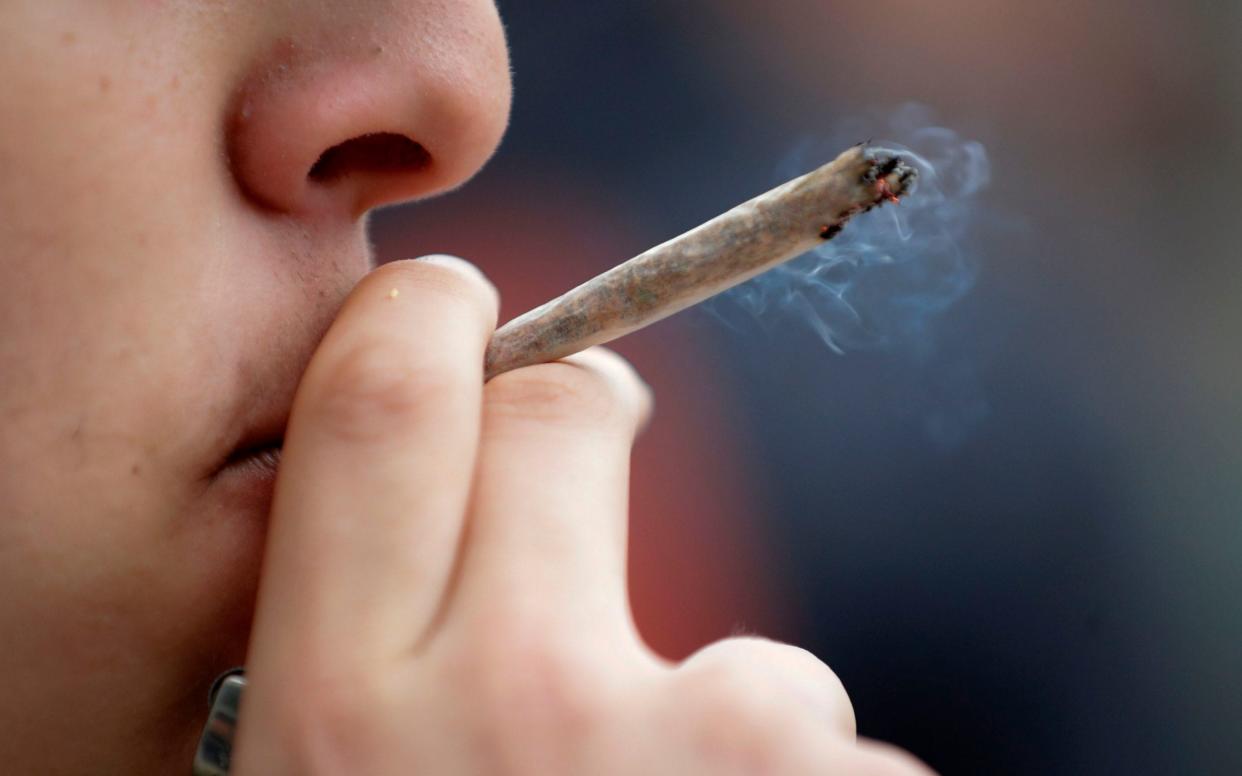‘Damaging’ police leniency over cannabis revealed

Police have been accused of decriminalising cannabis by the back door, as official figures show nearly nine in 10 people in parts of the country are escaping court after being caught with the drug.
The Home Office data reveal the most lenient forces are charging just one in eight (13 per cent) offenders, with the remainder let off with a caution, community resolution or on-the-spot fine.
By contrast, the toughest police forces are charging up to 60 per cent of people caught with the class B drug, which has increased in its potency and been linked to psychosis and mental ill health.
Nationally, just under 24 per cent of those caught with the drug are charged with possession, down from 29 per cent three years ago.
Of the 91,479 caught with cannabis in England and Wales last year, 21,672 were charged with the remainder dealt with through out of court settlements that did not result in a criminal record.
Just over 17,500 (19 per cent) were let off with a cannabis warning, 6,148 (seven per cent) were given a caution and 7,410 (eight per cent) were given an on-the-spot fine.
Most - 38,832 (42 per cent) - received a community resolution, which usually involves the suspect admitting the offence on the street, apologising at the scene and accepting a printout of mental health implications of cannabis.
The data showed the toughest police forces were five times more likely to charge an offender than the most lenient. Avon and Somerset police charged 63 per cent, while Surrey charged 13 per cent.
David Raynes, of the National Drug Prevention Alliance, said: “The astonishing disparity in the recent figures on policing action, by different constabularies, must be a cause for concern by ministers.”
Mary Brett, from the drug prevention charity, Cannabis Skunk Sense, said the partial decriminalisation underestimated the health risks from the drug.
“This variability in the charging rate unfortunately simply reflects the varying attitudes of people to the effects of the drug. There is a lot written about cannabis but not the truth about how it actually operates in the body and brain.
“Cannabis is actually a very harmful drug in itself and leads to the use of others. Until the true dangers of cannabis use are widely agreed on and properly publicised, great damage will happen.”
The figures follow moves by a number of police forces including Thames Valley to let young people off prosecutions for drugs if they agree to undergo drugs education programmes - as a way to avoid criminalising them.
A National Police Chiefs’ Council spokesman said: “The law provides a range of options for dealing with those found in possession of drugs that have to be proportionate to the individual circumstances.
“Charging is one outcome and police officers can use professional judgment to make use of others, including out of court disposals and cannabis warnings.
“It is a matter for chief constables, in liaison with their police and crime commissioners, to determine the operational priorities for their force. Community resolutions help police handle low-level offending proportionately.
“Victims’ wishes are central to our decision-making and officers have established tools and guidance to help them to reach the right outcome. Officers’ decisions are examined by force scrutiny panels.
“The national strategy on charging and out-of-court disposals makes clear that community resolutions should not be used in the most serious cases.
“Officers are making decisions about whether it is fair and proportionate to give someone a criminal record for their first minor offence – when they’ve admitted responsibility, offered to remedy the crime, are considered unlikely to reoffend, and can be given a sanction that deters further offending such as attending an educational course.”

